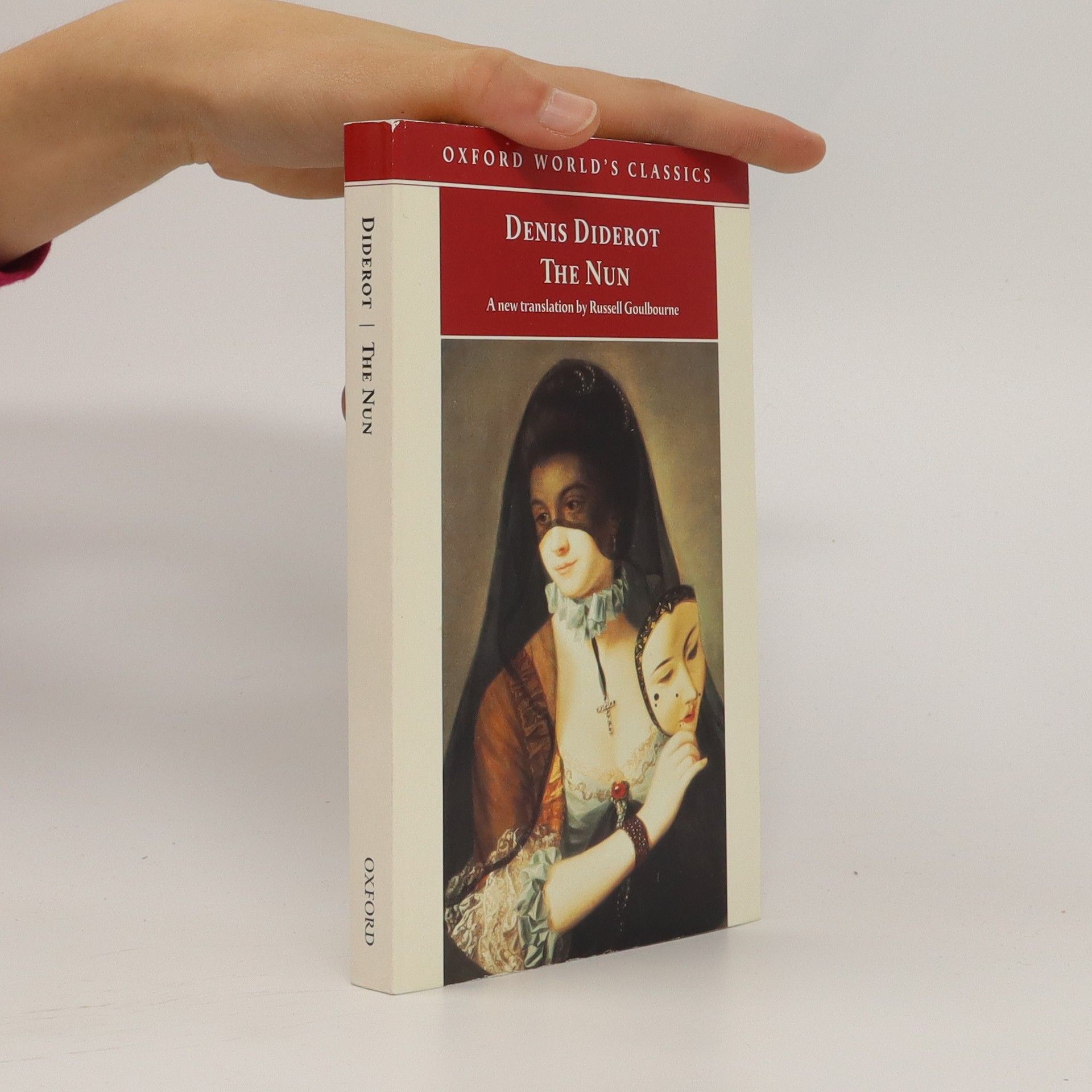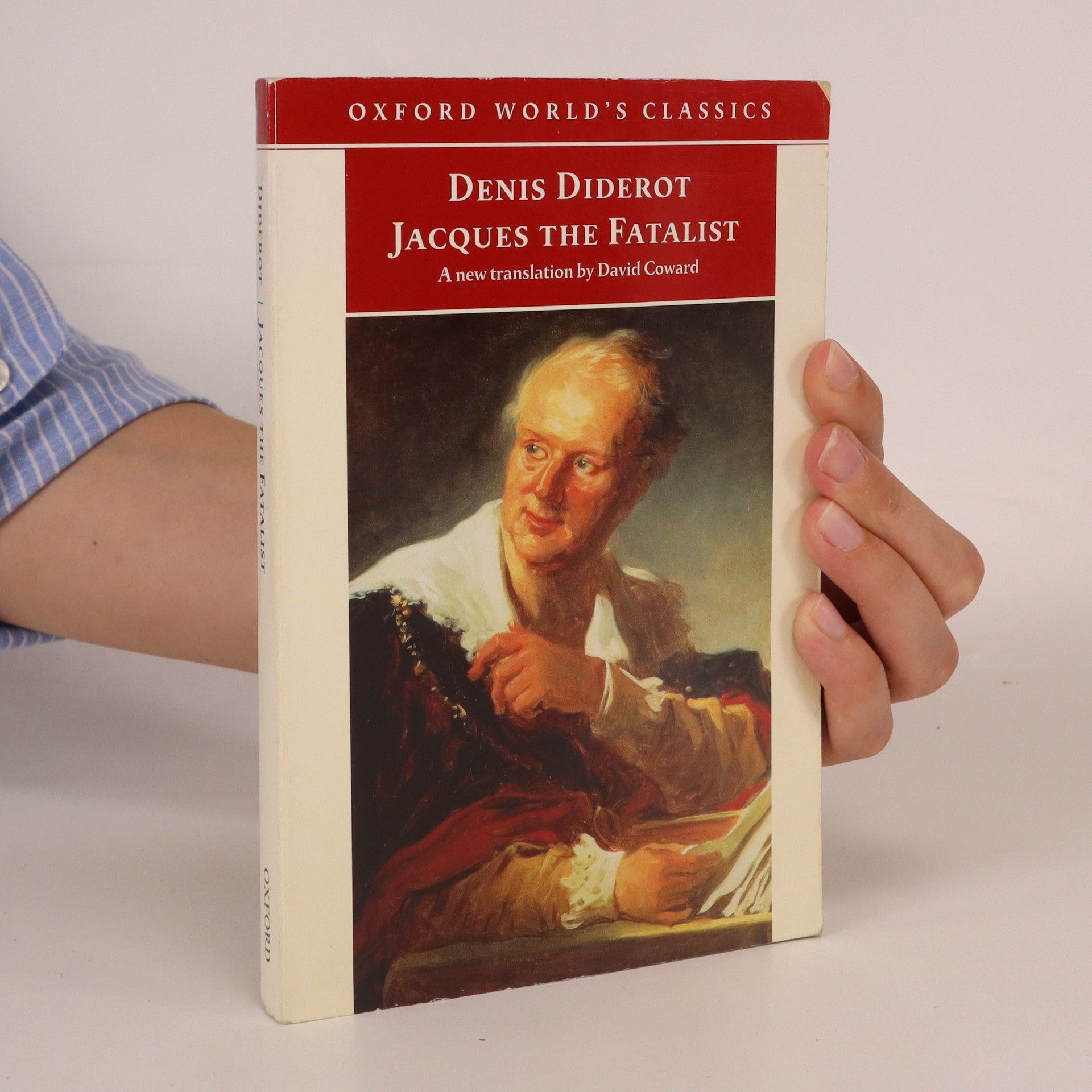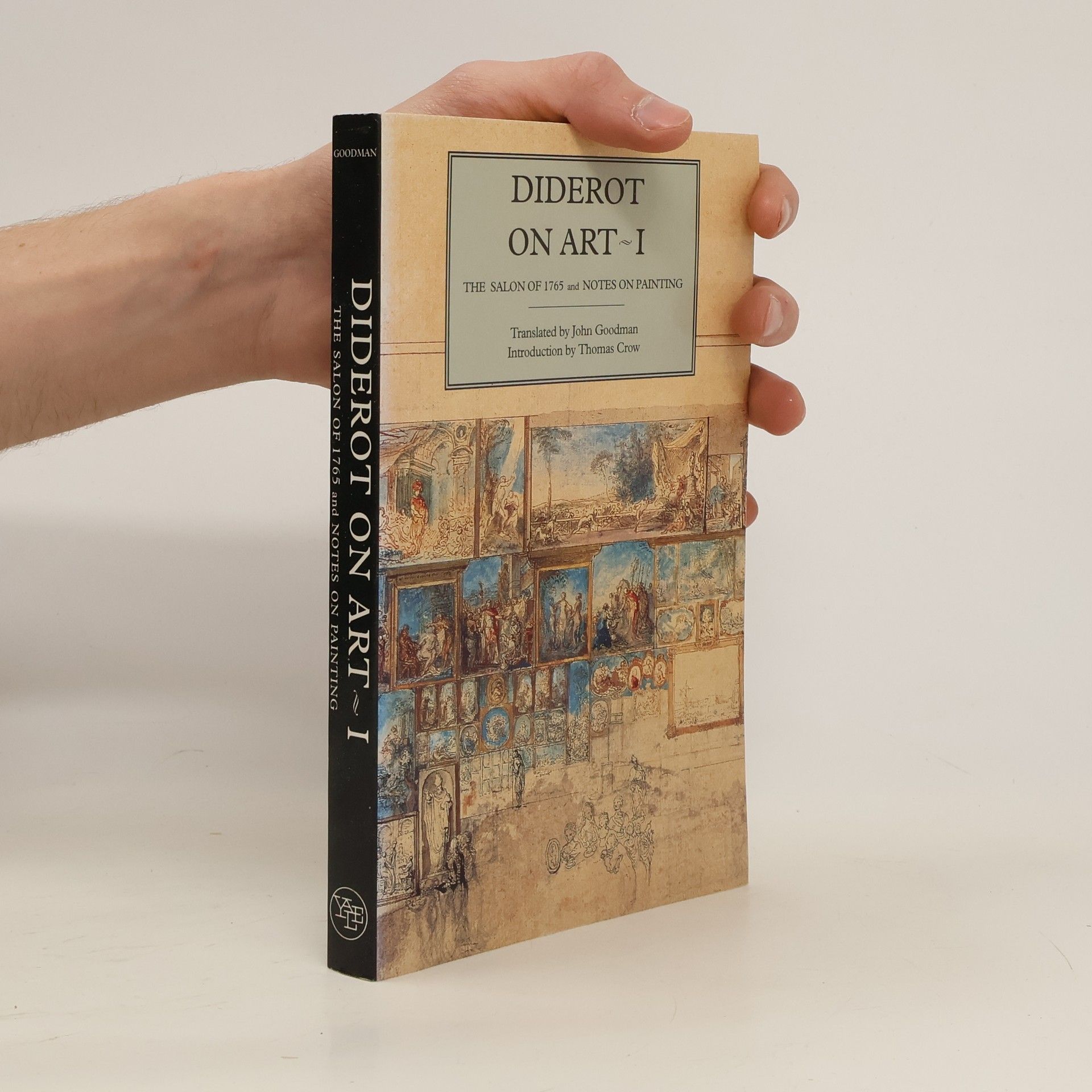La religiosa
- 247 páginas
- 9 horas de lectura
Denis Diderot fue una figura central de la Ilustración francesa, conocido tanto por sus indagaciones filosóficas como por sus innovaciones literarias. Como editor jefe y prolífico colaborador de la Encyclopédie, desempeñó un papel fundamental en la difusión del conocimiento y la configuración del discurso intelectual. En su obra de ficción, Diderot experimentó audazmente con la estructura narrativa, cuestionando las convenciones y explorando profundas cuestiones sobre el libre albedrío y el determinismo. Su perspectiva filosófica, arraigada en el materialismo y una crítica al optimismo tecnológico desenfrenado, ofrece ideas perdurables sobre la condición humana y el progreso social.







First paperbound edition of 485 remarkable plates -- over 2,000 illustrations -- that accompanied landmark work of the Enlightenment. Royalty-free images depict agriculture, military science, metalwork, mining, textile manufacture, masonry, carpentry, more.
The Salon of 1765 and Notes on painting
The 18th-century French philosopher Denis Diderot - author of idiosyncratic fictional works such as "Jacques the Fatalist" and "Rameau's Nephew" - is also considered by many to have been the first great art critic. This two-volume edition makes his art-critical texts available in English.
Jacques the Fatalist is a provocative exploration of the problems of human existence, destiny, and free will. In the introduction to this brilliant translation, David Coward explains the philosophical basis of Diderot's fascination with fate and examines the experimental and influential literary techniques that make Jacques the Fatalist a classic of the Enlightenment.
Diderot's The Nun (La Religieuse) is the seemingly true story of a young girl forced by her parents to enter a convent and take holy orders. A novel mingling mysticism, madness, sadistic cruelty and nascent sexuality, it gives a scathing insight into the effects of forced vocations and the unnatural life of the convent. A succès de scandale at the end of the eighteenth century, it has attracted and unsettled readers ever since. For Diderot's novel is not simply a story of a young girl with a bad habit; it is also a powerfully emblematic fable about oppression and intolerance.This new translation includes Diderot's all-important prefatory material, which he placed, disconcertingly, at the end of the novel, and which turns what otherwise seems like an exercise in realism into what is now regarded as a masterpiece of proto-modernist fiction.
Rameau’s Nephew is a fictional conversation written by Denis Diderot, one of the key figures of the French Enlightenment. Composed over many years and exploding onto the French literary scene when it was first released, in form and content it is unique in French literature. In a famous Parisian chess café, a down-and-out (“HIM”) accosts a former acquaintance (“ME”) who has more or less made good. They trade stories and satirise the society in which they move, one of extreme inequality, corruption, and envy, where mediocrity is allowed to flourish. They gossip about the circle of hangers-on in which the down-and-out abides and discuss the nature of genius, good and evil, chess, music, and art. And towards half past five, when the warning bell of the Opera sounds, they part, going their separate ways. The book fascinated Goethe, Hegel, Engels, and Freud in turn, achieving a literary-philosophical status that no other work by Diderot shares. This edition offers a brand new translation of Diderot’s famous dialogue.
Focusing on the political writings of a key figure in the French Enlightenment, this volume includes significant articles from the Encyclopedie, complete texts of Diderot's "Supplement au Voyage de Bougainville" and "Observations sur le Nakaz," both newly translated into English, along with numerous contributions to Raynal's "Histoire des Deux Indes." The editors provide an insightful introduction that contextualizes these works, highlighting their essential characteristics and interconnected themes.
Set in 18th century France, this erotic novel follows Sultan Mangogul, who, feeling bored and suspicious of his mistress Mirzoza, seeks a genie’s help. He acquires a magic ring that reveals women's sexual secrets, leading to scandalous revelations among his guests. The narrative critiques the moral standards of the elite while presenting Mirzoza positively, possibly to gain favor with Madame de Pompadour, a key figure in Diderot's career. This work blends humor with commentary on societal norms, making it a significant piece of French erotic literature.